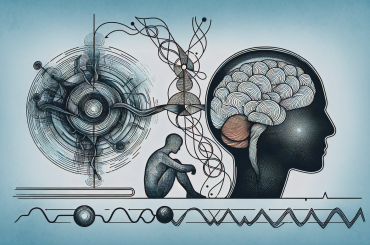Depression is a mental illness most people are familiar with. Many have loved ones who have suffered from symptoms of the disorder. Others have struggled with it themselves or they have simply heard of it. Depression is a common term that may seem simple and straightforward. However, the truth about high-functioning depression may be a concept that’s new to many.
It may seem that if a person has depression, it would be obvious. But there are common misperceptions about what depression looks like. In reality, there are many people who are suffering from this mental health disorder but are able to participate in day-to-day activities and responsibilities. There are some individuals who would classify these people as having high-functioning depression. However, high-functioning depression is a term constructed by society. It is not a clinical diagnosis, nor should it be treated as one.
What Is Depression?
Depression is a mental health disorder that can cause individuals to experience a number of distressing symptoms. Clinical depression is different from occasional feelings of sadness or grief. Everyone will experience those emotions from time to time. If a person experiences a depressed mood more often than not, is struggling with symptoms that are impacting their ability to function, in their jobs, relationships and daily lives, they are likely suffering from clinical depression.
The American Psychiatric Association estimates that nearly 7% of adults will be impacted by depression per year and less than 17% will experience symptoms of depression at some point in their lifetime. The World Health Organization also notes that depression is a leading cause of disability throughout the world.
The symptoms of depression can vary greatly but may include intense feelings of sadness, irritability, excessive tearfulness, lack of energy, difficulty concentrating, sleep disturbances, and pervasive thoughts of death or suicide.
The Diagnostic and Statistical Manual of Mental Disorders, Fifth Edition, notes that there are several types of depressive disorders, including major depressive disorder and persistent depressive disorder. A person may be diagnosed with major depressive disorder if they have been suffering from symptoms for at least two weeks and are experiencing a significant disruption in their ability to function as a result. The National Institute of Mental Health defines persistent depressive disorder, also known as dysthymia, as a diagnosis given to someone who has been experiencing a depressed mood for at least two years that includes episodes of major depression combined with periods of time in which symptoms are less severe.
High-Functioning Depression vs. Dysthymia
Many people use dysthymia (persistent depressive disorder) as an alternate term for high-functioning depression, but high-functioning depression is not a true clinical diagnosis, whereas persistent depressive disorder is. In fact, as discussed in a Medical News Today article, there are some professionals in the field of mental health who are opposed to using the term high-functioning depression entirely. Not only can it be misleading, but it can also minimize the impact dysthymia has on a person.
It is important to recognize that people who have major depressive disorder or persistent depressive disorder may not always appear as though they are suffering to those around them. People who have dysthymia in particular have described it as though they are constantly living under a gray cloud. They may be able to take care of the things they need to, but it does not mean that they are not experiencing the distressing and sometimes debilitating symptoms of depression.
Getting Help
Seeking treatment for depression is essential. It is not uncommon for symptoms to worsen over time, so the earlier you are able to address your concerns, the better. If you have been questioning whether you have clinical depression because you have been able to continue functioning without disruption, please consider speaking with a professional. Remember that high-functioning depression is not a true disorder, and even though you may feel like you are getting by, you should not have to live in a state of wondering what tomorrow will be like. Will you be happy? Will you be sad? Will the gray cloud ever go away?
Treatment can help.
About Sierra Tucson
Sierra Tucson is a nationally recognized provider of residential and outpatient treatment for adults who are struggling with addiction, trauma, chronic pain, mood and anxiety disorders, and co-occurring conditions. Located on 160 acres in Tucson, Arizona, the campus offers a serene environment to focus on healing and recovery. Treatment options at Sierra Tucson include inpatient treatment, residential care, partial hospitalization programming, intensive outpatient programming and detoxification services. For more information, please visit www.sierratucson.com.







